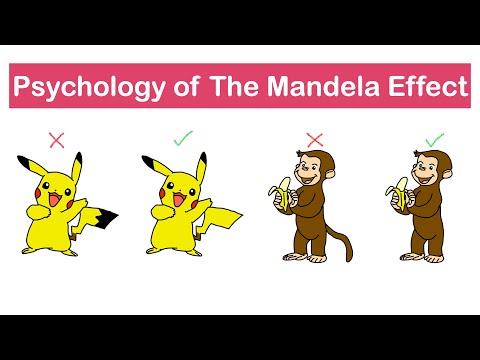LEVERAGING THE MANDELA EFFECT
There was a time when professionals in the entertainment industry devoted their actions and energy to elevate the art of filmmaking.

The memories of it are so clear… and so
many. Executives mentoring on the balance between the art and finance, agents
nurturing creative excellence, attorneys negotiating deals for the good of an Indie
production, the deep personal caring of acting coaches noticing the untapped potential
of the next Pee Wee Herman or Lawrence Fishbourne. Breakdown Express being the
door that opens calls for the lucky newcomer that gets hip-pocketed. The casting
director that saves the headshot of new auditioning actors and calling them in for roles
that make their careers. Samuel French bookstore were every employee held a vast
knowledge of every era in Hollywood.
Yet, drive Sunset Blvd today and there is no trace of Samuel French. Auditions are
done online with no human interaction. Hiding a dozen digital cameras around a room
so the Director makes his choice by watching monitors far from where the acting takes
place. Where did this Director learn his technique? What cinematic greats taught him
the best camera move for a scene’s tone?
Studios were run by people that knew how to recognize a winner of a script. The value
of the company stock was based on the ability to know what drew audiences to
theaters. Entertainment attorneys would take chances if they believed in raw potential
of an artisan in Hollywood productions.
And most of all, the idea that gathering people together in theaters by the hundreds
could open the minds and hearts of people for a better world if enough theaters were
filled. Families bonded when they got together at a set time once a week to watch their
favorite TV show. “Sing Along With Mitch” was followed by “Alf” or NYPD. Network
execs knew that one of the facts was that television characters are written so they never
change, so that fans at home knew they could count on relating to the same character:
Columbo, Ally McBeal, The Fonz, Dr. Quin, Medicine Woman.
Is it a conspiracy theory to say Amazon wants people to forget that watching a movie in
theaters moves people emotionally more than watching it on a cell phone? Do ads
say, “This is one film you want to see in the theaters – it’s THAT powerful!” We know
for sure that Amazon and Disney lied to the lead actors in Road House and Wonder
Woman II so they could maximize the profits for Amazon Prime. It is the consequence
of this decision that should be argued: the actors lost millions of dollars and the
decision killed the franchise.
There was a time when so many people would be outraged at a leading studio
purposely destroying filmmaking as an art form, and as a force that uplifts humanity. Is
the goal to accelerate the collapse of human morals or remove the Hero’s Journey from
society?
In the movie, “The Mandela Effect” the husband and wife lose their daughter when she
drowns in the ocean. She drowned to save her stuffed animal Curious George.
Curious George had a tail according to most older people, but the “matrix” of reality
swears George never had a tail. The husband is so determined to use his coding skills
to annoy the matrix or simulation the family lives in enough to save his daughter from
drowning. While the exact steps he takes might not be enough to force the simulation
to go back and let him live the alternative future, the idea shouldn’t be discarded.
How does that relate to filmmaking today and Edge Technology? First, understand that
changing humanity for the worse is an actual thing. “Accelerationists” are explained in
my books, and they want to accelerate humanity to a dystopian reality. Whether the
people that have the most influence over how this reality moves through time want the
power of story to stop giving people hope and examples to rise up to virtuous goals, or a
tech company just wants to make more money, the art of filmmaking is on the verge of
dying.
If you follow the example of the movie, all it takes is one man focusing on an alternate
reality or outcome to annoy the simulation/reality to alter the future.
I’m devoted to saving the art of filmmaking, and see merging with edge technology as a
way to make the Mandela Effect of films survive. This couldn’t be accomplished if it
was launched in Hollywood because there would be too much bleed-through, spying,
and betraying.
Here is where the plot of the movie “The Mandela Effect” presents a way to preserve
the art of filmmaking. In this movie the girl drowns trying to get her stuffed animal
Curious George out of the ocean when her parents couldn’t see her in time to save her.
The father is a master coder for computer language. He determines that if the
simulation or matrix was bombarded with enough data insisting the girl is still alive then
it changes current reality. It comes down to his persistence in annoying the simulation
with a better future if the girl lives. Eventually, the simulation goes back to the past,
keeps George with the parents, and she never drowns trying to save her plush toy.
The streaming giants and society are systematically destroying the power of story when
it is told to a group audience, and are also reducing the quality of the art. They can do
both because eventually so few people will remember how much more emotionally
touching it was to see action heroes or love stories in a theater. Think about comedies:
if you are surrounded by people laughing out loud at a comedy scene it is funnier and
you yourself laugh harder and enjoy the film more. Seeing Wonder Woman on a big
screen surrounded by girls your age makes her more of a hero that inspires buying toys
and clothes to remind you the potential of yourself as a young girl. It comes down to
what you believe about the film story and characters.
You could imagine or call the entertainment industry being dominated by Disney,
Amazon, and Marvel Comics the simulation. The simulation cannot be stopped or
dominated. But, a key aspect in it – the art of filmmaking – can be altered, protected,
kept free to artistic style, and so many things it is already famous for doing for society.
All it takes is a company and leader strong enough, valuable enough, to be annoying in
its reminder to people, actors, Directors, Producers, and audiences how great the
theatrical experience is for films.
That is my mission, in a way, to present enough annoying reminder of what it was like,
how powerful it is as an art form, that the simulation lets this course be changed in the
past so theaters are full of fans again.
It would not be enough to just create a new version of the state of Georgia shooting a
number of films. The data input into the simulation comes from many systems:
investment, distribution, agencies, lawyers, merchandise, Apps, Games, Metaverses,
pro athletes, Influencers, Edge Tech, A.R., V.R., X.R., KOL’s, Cloud Storage, A.I.,
hardware, and theaters. The model used must have its own breakthrough path in
every category. And the will to not quit until the first mega-deal or hit series deal is
announced. From that second on the simulation will at first pay attention, then ignore,
then starve, then start racing to catch up, but finally it will declare it is better to go back
in time and allow this new offshoot to create a future that includes the art of filmmaking
at its highest. Once the simulation allows this the audiences will return and rediscover
the thrill of the theatrical experience.
Altering the truth and gradually forcing people to not believe their own eyes, memories,
and experiences is one of the key goals of Big Tech and the Search leaders Google and
Quora. Preventing searches that reveal the truth has been reported countless times.
The goal is not just a short-term political goal it is a long-term goal. History is full of
tyrannical leaders destroying the past, especially art and writing that reveals the true
history people built their cultures upon for generations. Remove that and in three
generations there is no one left to remember the truth or past. This time frame is
shortening.
Remove the greatest films and replace the long story with Instagram posts and you
prevent people from learning from films.
The point is not to forget, to refuse to let the simulation win. Force the alternative future
for the art of film. Bombard the simulation from all systems and a Dynamic survives
and so does our so deeply loved cinematic art.
